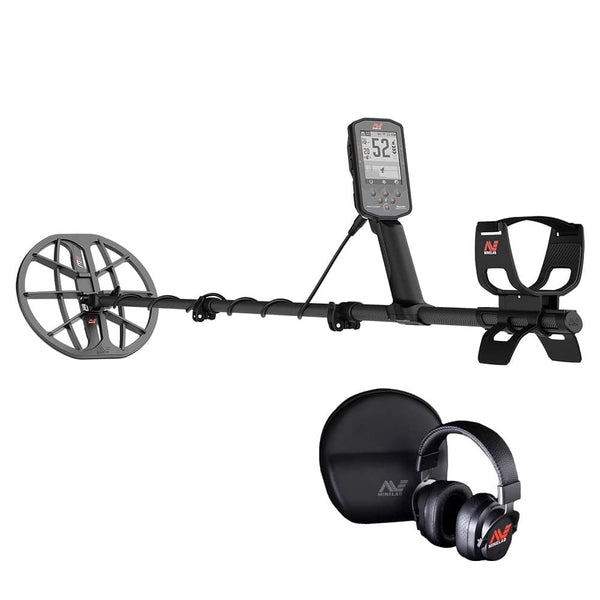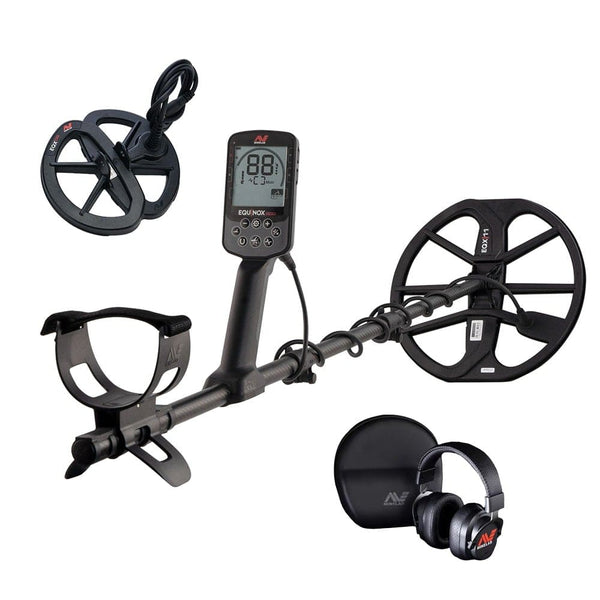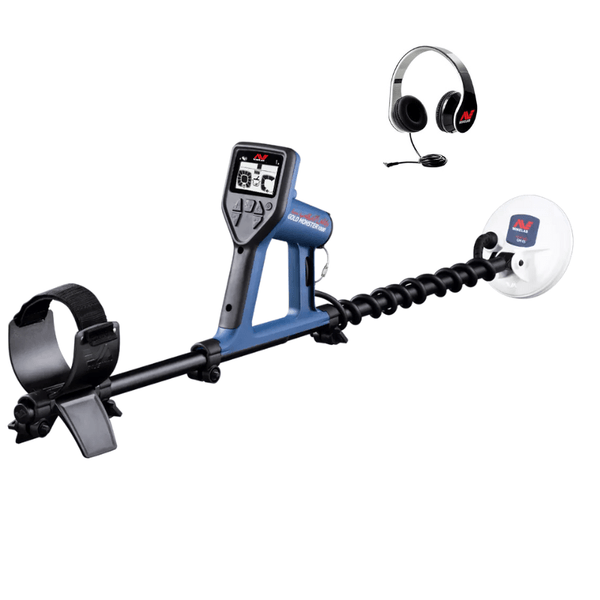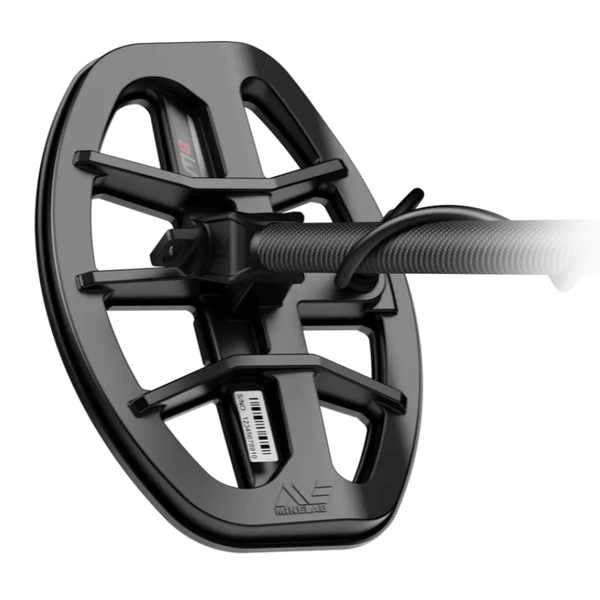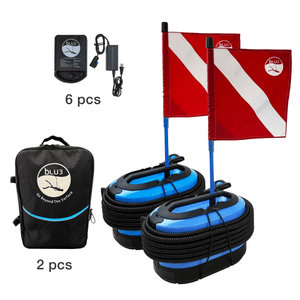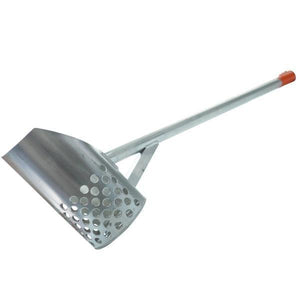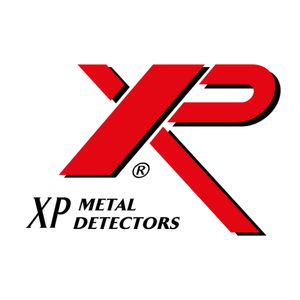The Ultimate Guide to Underwater Metal Detecting
Prospecting for gold and other precious metals can be a lot of fun. Nothing beats the feeling of investigating a signal to find out it’s a gold nugget. If you want to add an extra thrill, you might want to try underwater metal detecting. This will allow you to dive down and fully investigate a waterway. Keep reading to learn more about this hobby and some of the equipment that you need to start.
Why Start Metal Detecting Underwater?
The best place to start is by talking about why you might want to search for targets underwater. The most obvious answer is that it can be a lot of fun. You’ll be able to combine scuba diving with metal detecting. Though it will take a while to get used to it, once you do it will quickly become your new favorite hobby.
Another huge benefit is the ability that these areas are more difficult to explore than land-based sites. Because of this, there have been fewer prospectors going over the area. This increases the chances that you will make a valuable discovery.
You’ll be amazed at the wide range of items you can find. For example, you might be snorkeling off the beach and find a wedding ring that an angry bride had thrown into the sea. Or you might be in a river and unearth a bullet from the civil war.
Another reason to consider this hobby is that it will allow you to improve the environment. Many of these detectors will pick up on discarded metal trash. These won’t break down and will usually develop sharp edges. This can pose a health and safety risk, particularly if they are left in popular tourist places. Additionally, you will often be able to remove plenty of plastic. Though filling up a bag of trash each trip is a simple goal, it could have profound environmental impacts.
What’s the Best Place to Metal Detect?
If you are using a metal detector, there are a few locations that you might want to explore. First, you should try rivers. The flow of the water will help push potentially valuable items downhill. If you find the right river, you might even be able to find gold nuggets. Another benefit is that these tend to be relatively shallow. This ensures that you don’t need to go scuba diving.
Another good place to go underwater metal detecting is at the beach. This will give you a lot of flexibility. You can stick close to the shore. Or you can try scuba diving in deeper waters. Often, the further out you go the more you will be able to discover. For example, divers have been able to uncover shipwrecks.
A third option that you can explore is a lake. Many of these could be harboring important historical evidence. Plus, the water tends to be fairly tame. This makes diving and exploring the area a lot easier.
Before you start diving, check the rules on metal detectors. You won’t be allowed to prospect everywhere. Doing a little research can be a good way to avoid a costly fine.
Finding the Best Underwater Metal Detectors
The underwater detector you use is key. Without this, you won’t be able to find the targets to investigate. You might as well just be enjoying the view. So, what are some of the things you should be looking for in an underwater metal detector?
How the Underwater Metal Detector Works
The first thing to consider is the type of technology you are using. There are two choices. You can either use Pulse Induction (PI) or Very Low Frequency (VLF). Both of these have pros and cons. Let’s take a closer look at these technologies and the differences between them.
Let’s start by looking at PI and how it operates. In this case, it operates by sending an electronic pulse into the ground. It then stops and listens for the response. This will give you a good idea of where the targets are. It’s also going to be largely unaffected by things like underground minerals and high salt concentrations. The biggest weakness is its inability to discern between valuable and worthless items. Because of this, you might find yourself having to dig through more trash to get to the target.
On the other hand, the VLF will be better at filtering out junk signals. It does this by sending out a continuous sine pulse. This allows it to detect the changes in the magnetic field produced by these items. The higher frequency waves are better at locating objects that are close to the surface. The lower frequencies are better at finding those that are at a lower depth. Usually, you’ll be able to adjust these frequencies, so you’ll be able to find what you are looking for.
So, which one should you be using? This will often depend on the conditions that you are diving in. If there are a lot of minerals or salt in the water, it might be best to use a PI. This device will be better at filtering out these signals. On the other hand, the VLF will be better at identifying potentially valuable targets like coins.
Salt Water Mode
You’ll need to make sure that the detector is prepared for underwater conditions. Because of this, you should check that it will be able to cope with saltwater. If you don’t this can potentially get into the device and cause problems. Most detectors will be equipped with this function, but it’s best to double-check.
Depth
When searching for a good underwater metal detector, you’ll need to consider how deep it will be able to operate. This should be included as part of the product specifications. To find this information, look at the depth rating. This is the maximum water depth that the device can be used in.
Accessories
Next, you’ll want to consider the type of accessories that are included with the metal detector. Though you will be able to purchase these separately, it’s best if they all come with the detector. There is a range of accessories that you should be looking for. First, it can help to get underwater headphones. This will allow you to hear when you get a hit.
You might also want to use a dive pole. This will make it easier for you to hold onto the detector as you are swimming. You might also want to get a carry bag. This will make carrying and transporting the detector a lot easier. We’ll discuss this in more detail later.
Price
Lastly, it’s important to consider how expensive the metal detector will be. Understandably, you want to avoid spending too much money. But it’s best to pay a little to get something which you know will be able to last for a long time.
What are the Best Waterproof Metal Detectors?
There are dozens of high-quality waterproof metal detectors on the market for you to choose from. However, there are a few ones that stand out above the rest. Let’s look at what these models have to offer.
Minelab Excalibur II

This device uses Broad Band Spectrum (BBS). This makes it easier for you to reject unsuitable ground, allowing you to pinpoint diggable targets. It will also be able to filter out the false signals that you might experience when diving in salty water. It comes with plenty of accessories and will be able to last for a long time before you need to recharge it.
Minelab CTX 3030

This model comes with plenty of innovative features. First, it comes with five pre-set searching modes. This makes it easier to get the targets you want. It also can use GPS, so you can find target-rich areas again. Plus, it features a color LCD screen. It also has speakers, for when you are prospecting above ground. When under the water, you’ll be able to plug in your waterproof headphones.
Garrett Sea Hunter Mark II

Another excellent model to consider is the Garrett Sea Hunter Mark II. This uses PI technology. This ensures that you won’t have any problems with salt or mineral waters. There are a few other features that help this model stand out. First, it has very fast response times and it’s very accurate. It also comes with modes that will help you eliminate false targets. There are four stem options, depending on the way that you are planning on using the detector. It’s lightweight and it will be easy to change the batteries.
Nokta Makro Simplex+

The Nokta Makro Simplex+ is one of the most affordable models on the market. But don’t let this fool you into thinking that it is an inferior product. It comes with four search modes. You’ll be able to adjust the knobs, allowing you to remove any false signals. It will also vibrate when it gets a signal. This comes in useful when you are diving. It has a retractable shaft. This makes it easy to transport this device. Finally, there are plenty of lighting options. The LCD and keypad are backlit. It also has an LED flashlight.
Minelab Equinox 800
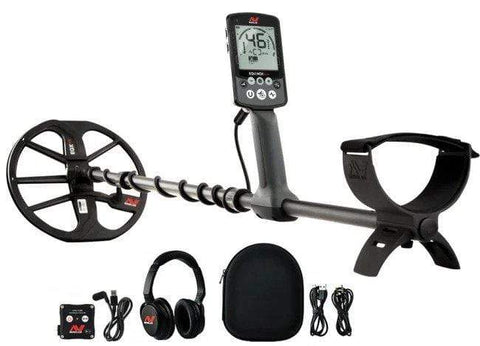
Lastly, you might want to think about the excellent Minelab Equinox 800. This detector can use multiple frequencies. Because of this, you will be quick to identify potential targets. The multiple settings will allow you to select what you want to focus on. It’s easy to get set up. Once you plug in your location, you’ll be able to start prospecting within minutes. The armrest is adjustable. This will allow you to prospect in comfort.
Comparison Table to Find the Best Underwater Metal Detector
Each of these detectors has its own unique set of pros and cons. This comparison table puts each of them side by side. This will make it easier for you to decide which one will be best for you.

How to Get Started Using a Beach Metal Detector
Once you have found the right detector, you’ll want to try it out. But before you can start finding valuable items, there are a few things that you need to do. Let’s look at some of these things.
Get the Right Gear
The first thing that you need to do is get the right accessories. There are a few important items that you will require.
First, it’s important to make sure that you have a pair of gloves. Some pieces of trash, like cans, might have sharp edges. You don’t want to accidentally cut your hands. Some people will also need goggles, to allow them to see underwater.
You’ll also need to get some waterproof headphones. These allow you to hear when you get a hit. Sometimes, these will come with your metal detector. If they don’t, you’ll need to buy them separately. If your detector is equipped with Bluetooth, it can be good to get wireless headphones. This ensures that you don’t need to worry about getting tangled up with cords when you are underwater.
Once you have a hit, you’ll need a shovel. When you are diving, it’s best to get one that will be lightweight. You don’t want it to be weighing you down. Some metal detectors might come with a shovel included. Make sure that this is made from plastic. You don’t want to be getting any false hits from a metal one.
If you are planning on detecting on the beach, you might want to use a sand scoop. This will allow you to shift through the sand to find the item that you are looking for.
Finally, you’ll need to get a utility belt. This will allow you to take everything you need for the search with you. A good utility belt can save you a lot of time, as you won’t need to continuously swim to the boat to get supplies. When choosing this belt, you need to pick one that won’t be made from metal. This ensures that you don’t get any false signals.
Find the Right Setting For the Best Metal Detector
After you have gathered all your supplies, it’s almost time to get started. But first, you’ll need to make sure that you have set your device up properly. How you do this will depend on what you are looking for. For example, some detectors will allow you to exclude any ferrous metals, which stops you from picking up on iron. To know the best setting to use, it’s best to use the instruction manual that accompanied the detector. Often, you will need to make a few fine-tune adjustments throughout the day.
Usually, it will take a while for you to get used to your detector. Because of this, it’s a good idea to dig every target at first. That way, you’ll soon know which ones are lucrative and which ones you can filter out.
Search Systematically
As you are searching in a new area, it’s essential to be systematic. Use a grid pattern. Make sure that each sweep overlaps slightly. This ensures that you don’t miss anything.
At the end of each hunt, you should keep a journal. You can then write down what you found and where. This can help you find more lucrative areas to search in the future.
Have Patience
Finally, the most important tool that any metal detector has at their proposal is a good attitude. It might be a while before you get a target. Even when you are getting hits, there is no guarantee that they will yield results. But, as long as you stick it out, you’ll eventually be rewarded with a valuable hit. Remember, you never know whether the next target will be a valuable coin or a gold nugget until you dig it up.
Final Thoughts
Underwater metal detecting can be a great hobby. You’ll be able to combine scuba diving and snorkeling with a passion for hunting for valuable items. The good news is that you don’t need any special skills or training to get started. All you need is the right metal detector and diving gear. Hopefully, you now know everything you need to start diving for treasure today.



